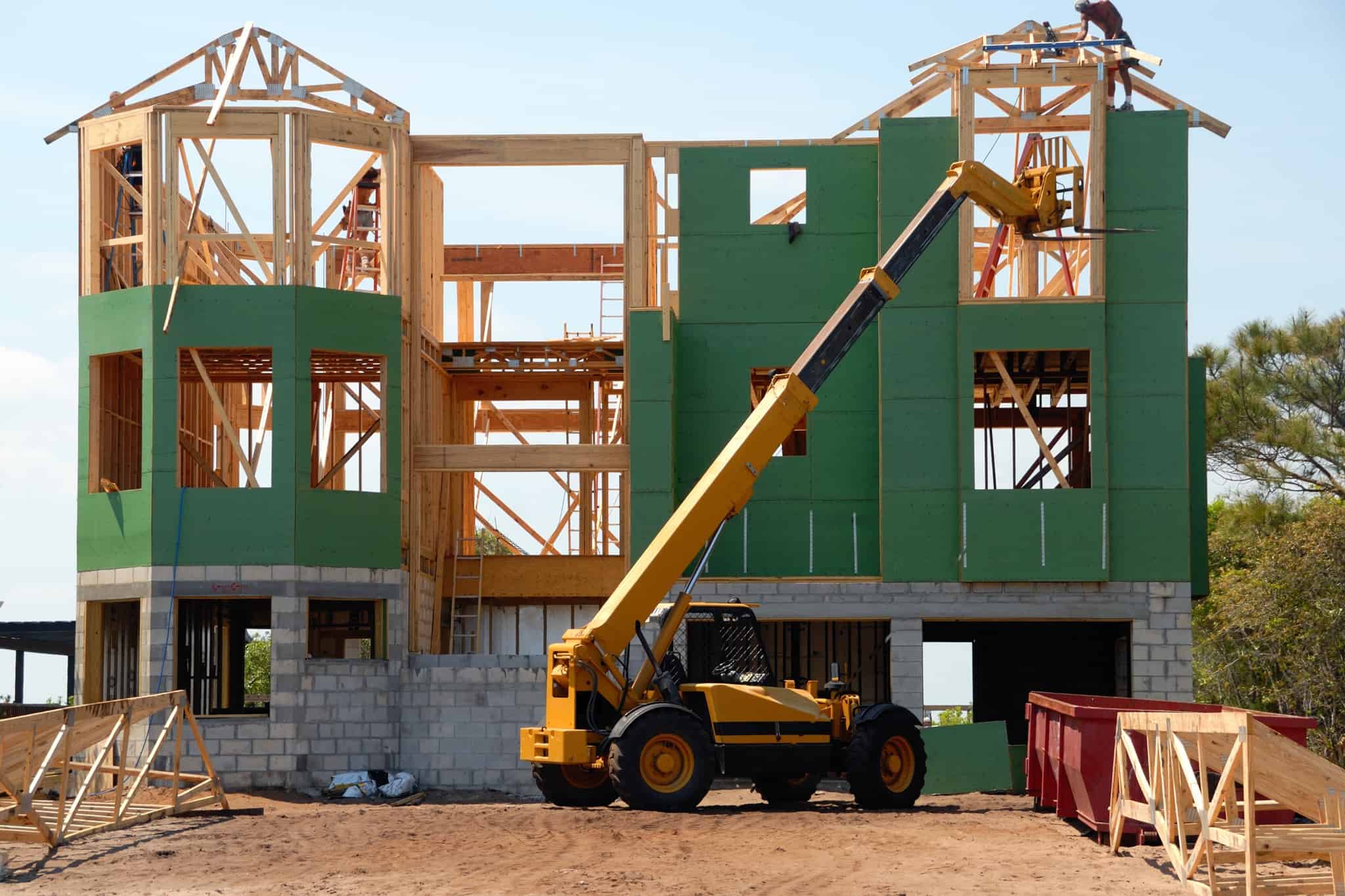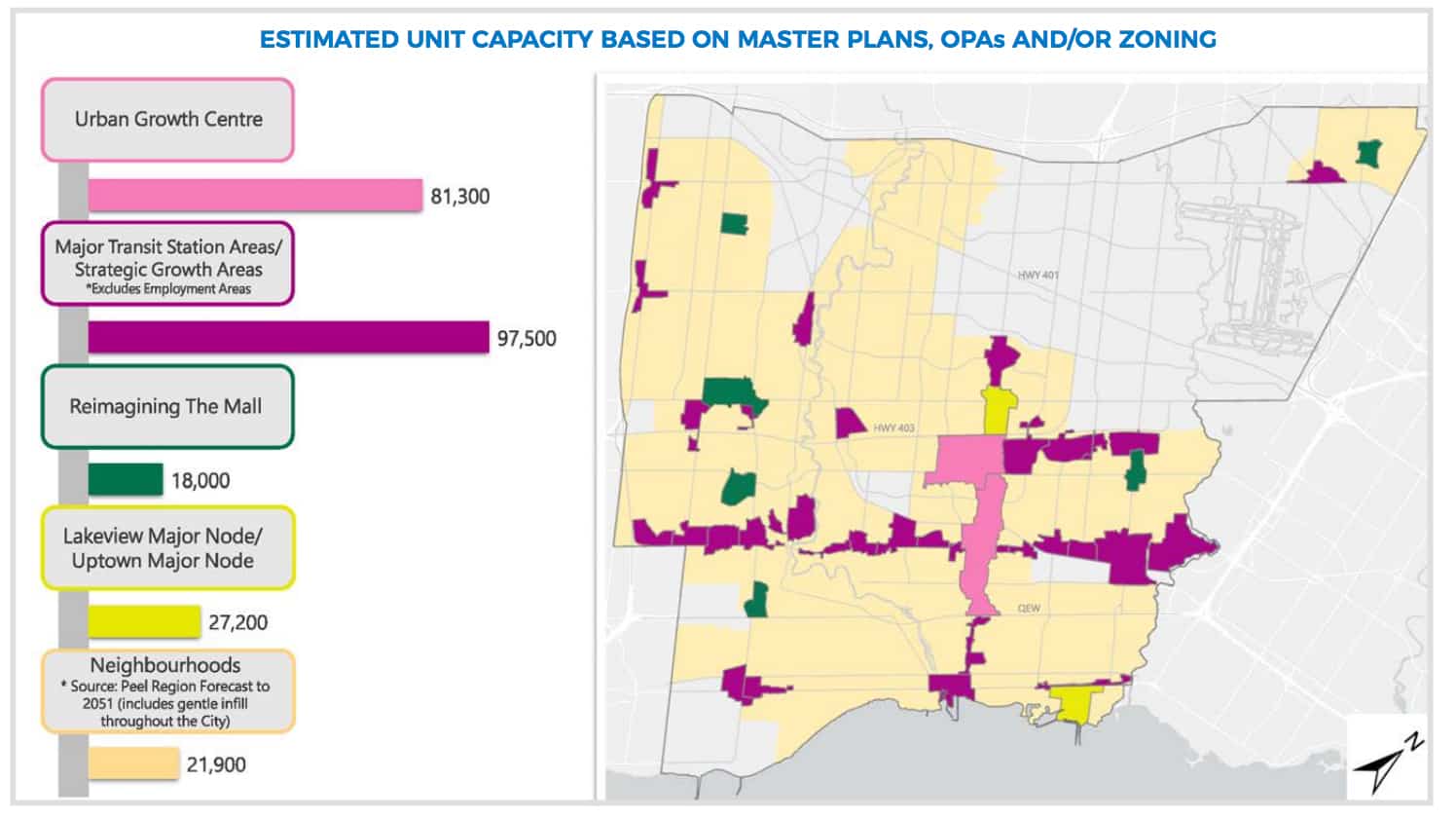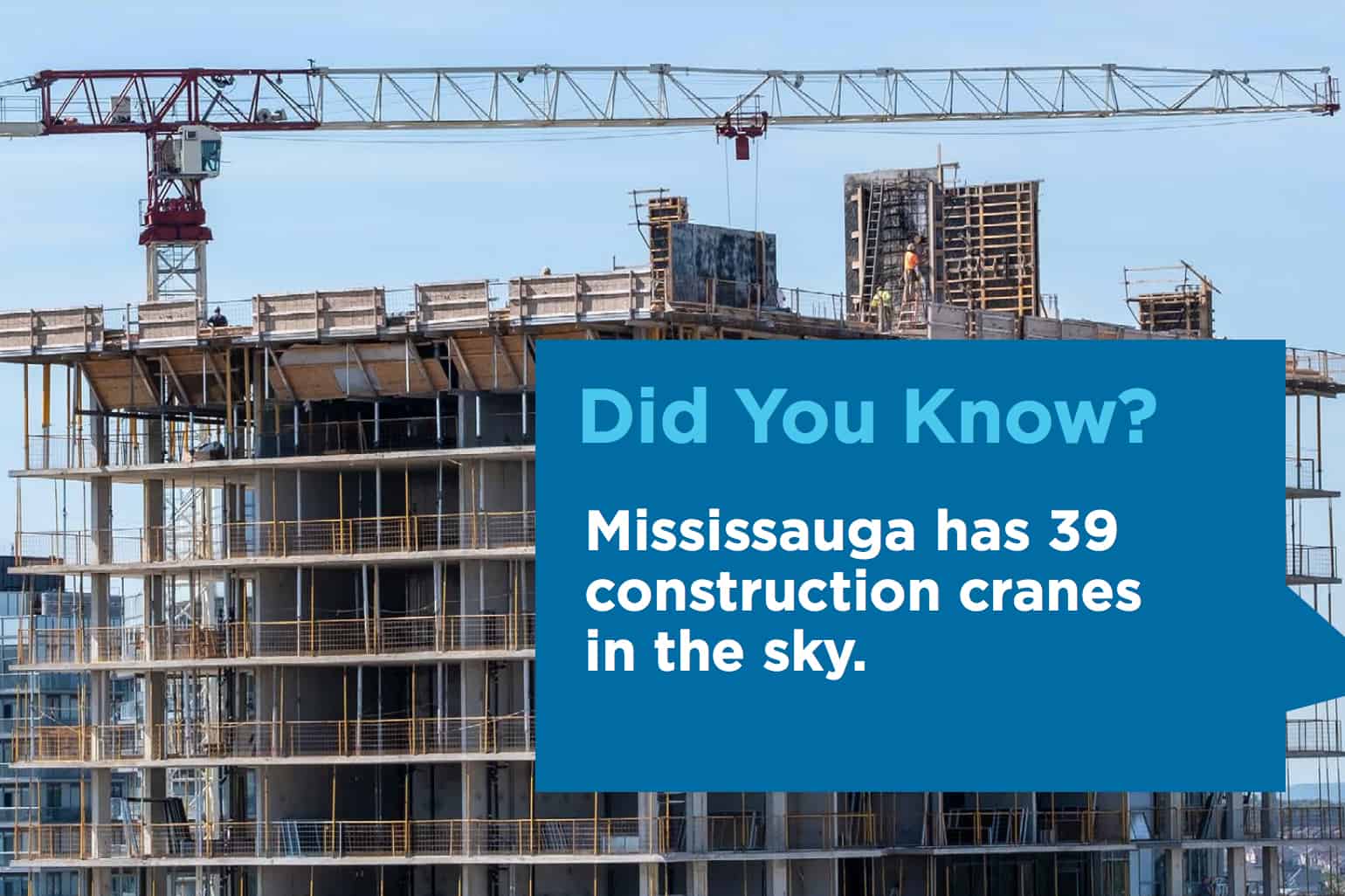New phase in housing growth builds up not out in Mississauga: Mayor
Published March 1, 2023 at 4:00 pm

Mississauga is entering a new phase in growth and a housing plan will change the face of the city.
To reach a goal to build 120,000 new homes in Mississauga, the city must increase its density.
The City of Mississauga officially launched its new Growing Mississauga: An Action Plan for New Housing at a press conference today (March 1).
Mississauga can’t continue to build single-family homes.
“Building single-family detached homes is no longer sustainable. It won’t allow us to meet our targets and frankly, we don’t have the land to do it,” said Mayor Bonnie Crombie. “We’re entering a new phase in our growth where we need to build up, not out. I know our residents don’t want to see Mississauga become a city of mega towers along our transit corridors. And neither do I. We want to grow responsibly.”
The new plan comes in response to Ontario’s Progressive Conservatives’ call to increase housing across Ontario. In October, the province introduced the More Homes Built Faster act and gave Mississauga a goal to build 120,000 new homes in 10 years.
Mississauga aims to keep the character of neighbourhoods and intensify downtown and along major transit corridors.
“Our residents can rest assured, we will maintain our identity,” said Crombie.

Density will mean more housing types and encouraging mixed developments.
“Making it easier to build semi-detached, triplexes, townhouses, stacked townhouses and garden suites in existing neighbourhoods that will help us accommodate more families, seniors, students and people who want to live and work in our city,” Crombie added.
The plan comes as “construction is at an all-time high,” said Crombie, adding that there are 39 cranes in the sky currently.
The Growing Mississauga action plan includes five goals and 23 actions.
The five goals are:
- Increase supply
- Improve affordability
- Streamline approvals
- Making it happen
- Educate, engage and report
The actions include:
- Pre-zoning lands
- Accommodating additional growth and density in planned developments across the city, including in and around major transit station areas (MTSAs)
- Directing growth to greyfield sites (Re-Imagine the Mall)
- Studying the conversion of employment lands in support of new mixed-use residential communities
- Streamlining developmental approval process
- Creating a online development pipeline model to show development activity and improve Mississauga’s ability to monitor housing supply
- Making it easier for residents/builders to create additional dwelling units on a lot
- Creating a “Housing Panel” to help Mississauga implement this plan
The plan addresses affordability and the housing crisis.
“With the average cost of a detached home over $1.3 million, and the average monthly rent over $2,000, too many people are being priced out of the market,” said Crombie.
The provincial government suggested a target of five per cent affordable units in new developments but Mississauga is aiming to increase that number to 10 per cent.
The city is also focusing on retaining affordable housing units and increasing affordable units through inclusionary zoning, said Andrew Whittemore, commissioner, planning and building for the city.
To achieve the housing goals Mississauga needs the cooperation of developers and upper-level governments. In the last three years, the city has approved over 80 per cent of development applications, Crombie said.

The applications could be processed more quickly if Mississauga were to split from Peel Region.
“An independent Mississauga will allow us to stay nimble and quick and respond to the unique challenges our city faces when it comes to delivering housing,” said Crombie, pushing, once again, for the province to allow Mississauga to leave Peel.
The increase in housing will also mean the need for infrastructure improvements and upgrades in transit and roads. Crombie restated the need for development funds for these projects.
See the entire Growing Mississauga: An Action Plan for New Housing here.
INsauga's Editorial Standards and PoliciesToday we launched our new housing plan that will fast track planned growth to help the province meet their goal of building 120K homes. This ambitious plan requires commitment from all levels of gov't, developers & construction industry to be successful. 🔗https://t.co/s9V68hR4mD pic.twitter.com/Y8eqZCC8q5
— Bonnie Crombie 🇨🇦 (@BonnieCrombie) March 1, 2023



